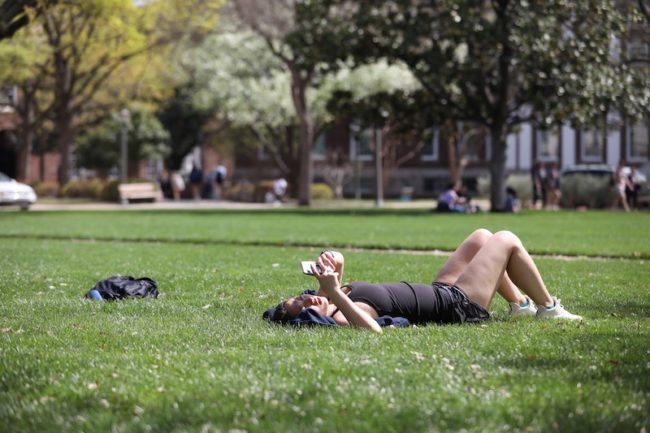SMU announced a new temporary grading policy on Thursday, aimed to lessen the disruption caused by COVID-19 for Spring 2020 classes. In hopes to ease the impact on GPAs, the policy gives students the freedom to choose between the usual letter grade or the new temporary grading system.
The new policy follows consultations with administrative representatives and school deans, as well as recommendations from both the faculty and student senates. The new changes only affect undergraduate students, as graduate schools will determine their own appropriate grading policies.
“The purpose of this policy is to provide a grading option for students in consideration of the change in teaching modality as well as other unusual personal and educational circumstances due to the COVID-19 outbreak in Spring 2020,” the new grading policy said.
This belief guided the creation of a new grading scale that is similar to the old grading scale and is divided into three groups: “satisfactory”, “satisfactory minus” and “no credit.”
Any grade C- and above would carry the “Satisfactory” designation and the student would receive full credit for course completion.
Any grade in the D range would result in the “Satisfactory Minus” and would count toward credit taken. It would also satisfy most general education requirements and may or may not fulfill major/minor requirements.
Students are urged to consult with their department and/or advisor for second language and major/minor requirments.
“No Credit” is for an F and would not carry any credit taken or satisfy curriculum requirements.
These groups are essentially pass/fail, but they do not count toward the number of pass/fail classes allowed by the SMU pass/fail policy.
“In providing this, we seek a temporary grading policy that is simple to understand, minimizes extra work for faculty, encourages students to finish their courses, and provides flexibility for individual students’ circumstances,” according to the released policy.
Currently, faculty have been instructed to continue grading along the normal letter grade distribution.
This allows for students to maintain letter grades that will count toward their GPA at the end of the semester if they are satisfied with the letter grade. It will also not penalize students who saw a decline in academic performance with the transition to online classes.
Graduating seniors must exercise the option to convert courses by 5 p.m. Central Time on May 19. The rest of the undergraduate population has until 5 p.m. on May 25.
In order to exercise this option, students have been instructed to select the courses they wish to change in my.SMU no later than the deadline.
As part of the change, SMU also extended the deadline for dropping a course until April 24, and courses dropped between March 16 and April 24 will not show on a student’s transcript.
The university also announced that it would have a special notation on the Spring 2020 transcript because of the global health crisis. Graduate schools are expected to communicate their policies in the forthcoming days.
Here are the schools with known policies so far:
GRADUATE SCHOOLS
Dedman Law School:
Dedman Law School will be going to a system of credit/no credit. They elected not to use the designation of fail because it would appear on a transcript.
Perkins School of Theology:
Perkins will be adopting a credit/no credit system. Any grade above a D- will receive credit. An F will receive no credit.
Students can also maintain the normal letter grading scale if they decide to not opt for the “credit”/ “no credit” system.
All Perkins grades for the Spring 2020 term will not have an impact on a student’s GPA.
Cox School of Business:
The Cox School will be giving students who earn a grade higher than a C- the option of selecting “pass” for their courses. This will allow students to receive full credit, but it will not affect their GPA if they choose “pass” by May 13.
Grades D+ and below will stay as the letter grade issued for the class.





















